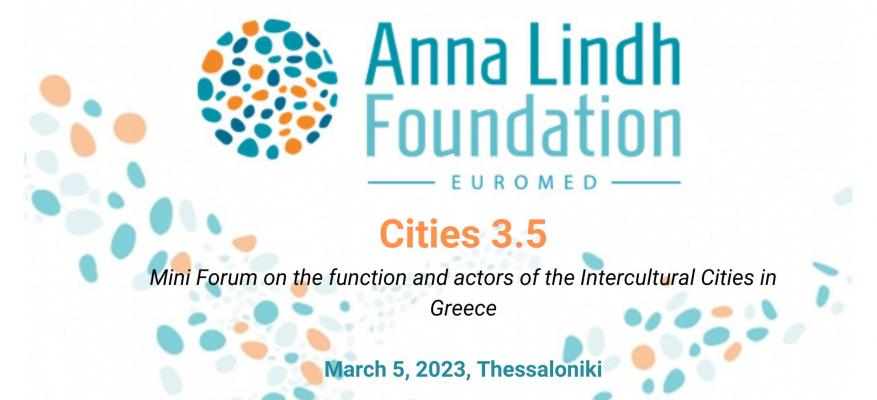
In March 2022, we ran the activity "Cities 3.0". A FORUM on the function and actors of the Intercultural Cities in Greece that included Conference sessions, Workshops, Networking Activities etc, which turned out to be a great success. As a follow-up to this forum, a smaller-scale forum was organized on March 5 in Thessaloniki. We named it Cities 3.5, to highlight that is a continuation of the Cities 3.0 Forum, but also a transitional stage for the Cities 4.0 Forum, which we really hope to be financially able to carry out in the near future.
Our main purpose was to give the opportunity to the major relevant stakeholders, i.e. local authorities, entrepreneurs, the academic community, activists, and CSOs, to see how important the “knowledge exchange is” and understand that the impact of their projects on society will be even greater if all pillars work together and contribute. Also, it is essential to know the pressing problems that they have to face, and the role that each one can perform within a cooperative model, in order to face those challenges.
At this Conference, we emphasized the role of the Academic Community. Dr. Vallianatos and Dr. Eythimiou spoke on behalf of Academia and pointed out the advantages that can arise from the cooperation of the academic community and civil society. On the one hand, civil society actors can be helped by the academic community through the expertise and access to information available to the academic world. On the other side, Civil Society Organizations (SCOs) provide the opportunity to the Academia to show its impact in the wider society, beyond the academic world, and test its ideas and theory. Moreover, SCOs can assist with the design of research to assure that the research meets citizens' needs and respond to issues that concern society. Finally, SCOs may encourage society's involvement and participation in the development and implementation of the research.
Dr. Vallianatos brought out the important role the Anna Lindh Foundation can have in the promotion of this cooperation. The Foundation is a space of networking, dialogue, and opportunity, where Αcademia and CSOs can creatively coexist.
Mr. Paraschou, member of the civil society, spoke about the obstacles to the cooperation of the Academy and CSOs in Greece, underlining both the tedious bureaucratic process and the suspicion with which the Greek academic community treats the CSOs. It is necessary to break these stereotypes and create a new framework of mutual cooperation.
PhDc, Ms. Vougiatzi, presented the case study of the UK’s Women’s Budget Group civil organization, which has been a key driver in the promotion of gender equality in the design and implementation of fiscal policies in the UK. The group was made up of CSOs and academics, among others, and is a typical example of good and efficient cooperation between the two pillars. They exerted pressure on governments, claiming equal treatment of men and women in government policies, and managed to influence political decisions. Their work has been a subject of interest in academic research and analysis.
Finally, Dr. Triantafyllou, Professor at Kadir Has University of Istanbul, spoke about the Civil Society of Turkey and its cooperation with the local academic community. The conferenced with a discussion among the participants.
